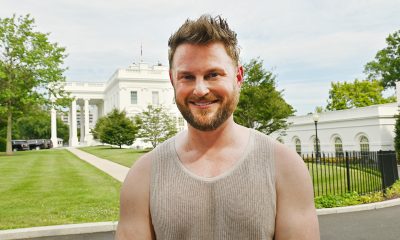Arts & Entertainment
‘Queer Eye’s Skyler Jay sues employer over trans-exclusionary health care
Crowdfunding is underway to donate to LGBT organizations
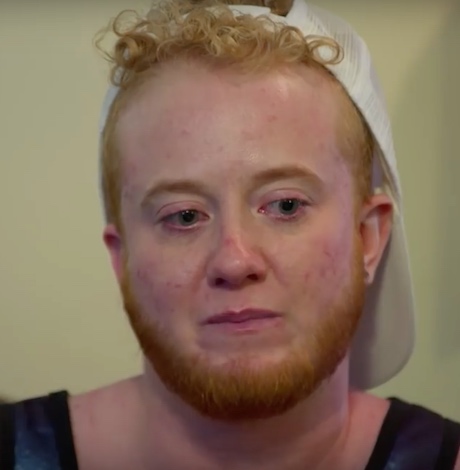
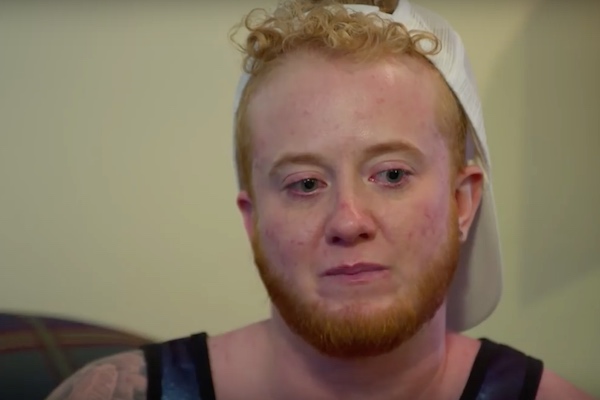
Skyler Jay on ‘Queer Eye’ (Screenshot via YouTube)
Skyler Jay, who appeared as the first transgender subject on the Netflix makeover series “Queer Eye,” is suing his employer the University System of Georgia (USG) for its trans-exclusionary health care policy.
USG, which oversees 26 public institutions and is governed by the Georgia Board of Regents, does not offer trans-inclusive healthcare to its employees.
During Jay’s “Queer Eye” episode he explained that his top surgery, totaling $16,000, caused unexpected complications. His medicals bills sent him into debt as he was unable to receive financial coverage from his employer’s healthcare. His “direct community” raised $8,200 to cover his care but due to the extra costs Jay has launched a GoFundMe page to pay off the rest of his debt.
He also wants to give back to the community and is crowdfunding $8,200 for LGBT organizations.
“This fundraiser will go directly toward my medical debt and some funds I will donate to couple of community organizations that could also use the help,” Jay writes on the GoFundMe page.
“Of the $8,200, I asked that $1,600 be donated to three different organizations, totaling the amount of $4,800, and the remainder of the $3,400 to be divided between two of my friends top surgery campaigns,” Skyler told PinkNews.
Crowdfunding has already raised money for Transcend Legal and two of his friends’ top surgeries. He is now aiming to raise money for Athens Queer Collective and Southern Fried Queer Pride.
Books
Zoë Rose Bryant on her chart-topping debut novel ‘Good Friends’ and inspiring young trans people online
‘Good Friends’ is currently #1 on Amazon’s “Hot New Releases” list of LGBTQ+ romance books
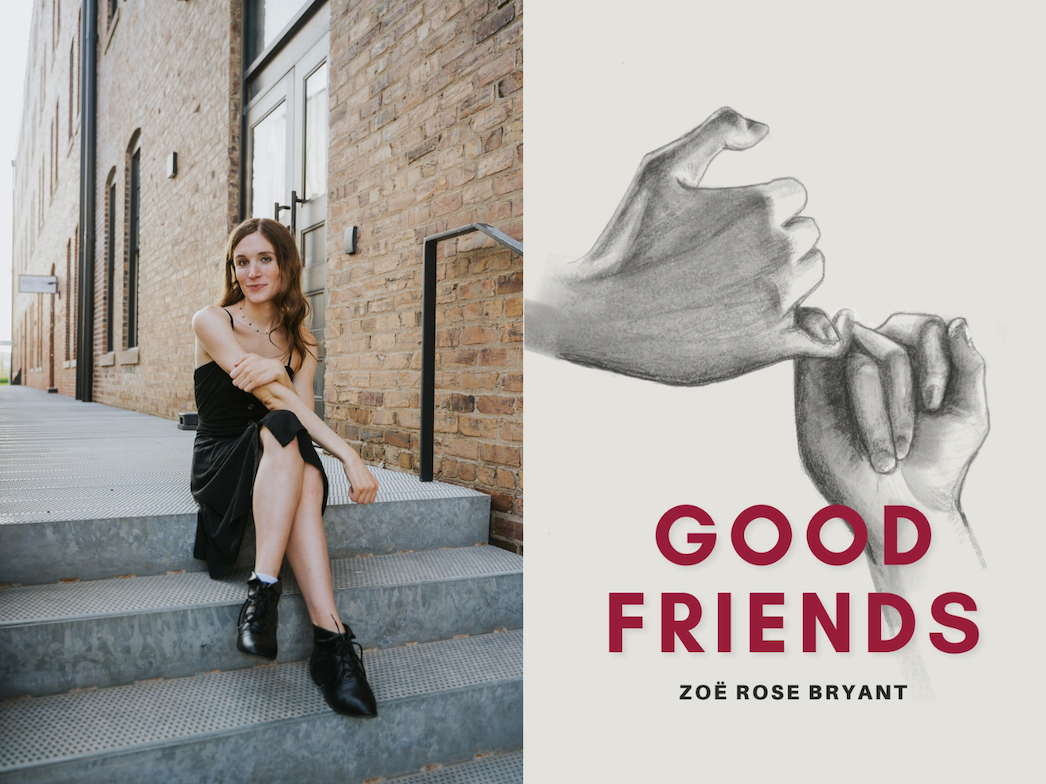
After coming out as trans in 2022, Zoë Rose Bryant quickly built a platform for herself, becoming one of the most popular and influential queer film critics on social media. Now, with the release of her debut novel Good Friends, Bryant is ready to “let people into” what she describes as a “private reconciliation” of herself over the years.
Citing film references like Richard Linklater’s Boyhood and Lukas Dhont’s Close, Bryant divided the book’s narrative into five acts. The queer coming-of-age tale follows the decades-spanning relationship between Andy and Owen, two friends who drift in and out of each other’s lives in their Nebraska small town. Owen’s outgoing nature brings Andy, the secluded protagonist, closer to reckoning with their own identity and sexuality.
Bryant originally envisioned and wrote Good Friends as a screenplay while living in Los Angeles and working as a film critic for sites like Next Best Picture, but she “realized pretty quickly” that in order to tell this story with proper prose, a novel was the go-to medium. “That was really scary to me because it’s just so much more time-consuming, I’d never done it before,” Bryant says.
The journey to writing the book and choosing to self-publish intertwined with Bryant’s own personal life and relationship to self, as she moved from Los Angeles back to her Nebraska hometown in 2024. “I came from L.A., really burnt out and stressed, and needing a break,” Bryant says. “I’d had my heart broken, and I lost my job. There was a lot of stuff that had happened where I was like, ‘I just need to reconnect with the world.’”
On Twitter, Bryant has been vocal throughout these transitional periods, sharing updates to her over 120,000 followers about raising money for surgery and the “intimidating” two-year process of writing a book. Now, just days after its release on Friday, Feb. 13, Bryant’s novel has reached the top spot on Amazon’s “Hot New Releases” list for LGBTQ+ romance stories.
The day before Good Friend’s release, The Blade had the opportunity to chat with Bryant in an exclusive interview about her major inspirations, how writing the book intertwined with her own journey as a growing public figure on social media, and the importance of celebrating the “little wins” through connecting with — and inspiring — young trans people. This interview has been edited and condensed.
Congratulations on Good Friends! How did you arrive at this specific story for your debut novel?
I think it was a year and a half into my transition, and I was just really interested in telling a coming-of-age story where we follow a character from a young age with those [out-of-body] feelings being present — even if you don’t know what to do with them. In part, it was inspired by me having come out to lifelong friends I’ve had and family, and a lot of people who felt like they knew me so well, being kind of taken aback. It was such a private reconciliation of myself; I wanted to write something that let people into that part of my understanding of myself over the years. Stuff that I never shared, never talked about, but was always there and growing in me. I’ve just never seen a story like that.
You know, there are stories about queer characters and trans characters, but not really one where you grow with that character. They’re born a boy, they’re moving through the world as a boy, but they have these feelings inside, and you get to see them blossom into who they were always born to be.
The book is also set against the political backdrop of both Obama and Trump’s presidencies.
It’s not an out-and-out autobiography by any means, but I feel like I was figuring out a lot about myself, both my sexuality and gender identity, during the height of the first Trump presidency. It was a really interesting time to come of age because there was so much progress with Obama’s presidency and the legalization of gay marriage, and all these really momentous wins for the left. Then all of that came to a halt. That definitely pumped the brakes a little bit on further interrogating my identity. I was really interested in writing a character reconciling with their queerness under the weight of all that, kind of like a period piece. It’s crazy to call the mid-2010s period, but that’s the time I knew growing up!
While writing Good Friends, I also realized how many parallels there were to Trump 2.0. I wrote and finished the first draft of the book before Kamala Harris was even the 2024 nominee. So much has changed since, but I also feel like everything that’s happened kind of strengthens the story. We have been through this before. There are people who have struggled under the weight of an administration like this, even if it’s kind of considerably worse this time. If anything, for me, it’s [about finding] a beacon of hope and finding love and support in little pockets, no matter where you live. No matter what else is going on in the world, be strong in yourself and continue on that journey, no matter how hard other people try to stop you.
You’ve built a big community online with your Twitter following and people looking to you for your thoughts on film and culture. How have you used social media as a tool to find that community, and also invite people into your creative process as a writer?
I’m so old, I’ve been on Twitter for so long! But I was personally in the film space from when I started college in 2017 to the start of 2020. Then I broke into writing about and reviewing films. In 2021, I moved to L.A. and started writing for Next Best Picture. I built up this little community of appreciating art and loving film and TV. And then I came out in February 2022! I wasn’t nearly as big online as I am right now, but I had a sizable following. It was kind of hard and weird at first because it was the main platform where I had to be like, “Hey, I’m making this huge change.” From then on, my following steadily grew. There were so few big trans voices, especially in journalism-adjacent spaces. I was always just like, “I want to use this platform for good in any way I can.” I didn’t really grow up around any trans people; I wasn’t following any trans people. This is part of the book, but in high school, the first big thing that made me realize trans people [existed] was Caitlyn Jenner coming out, and that whole saga.
I care about being really open. I’m not gatekeeping any information about these experiences because everything else is so hard — why make it harder for people to understand themselves and what’s going on with the community? So I would share all my little developments and wins, like when I changed my name, and celebrating each trans-versary, and obviously everything with my surgery.
Then, when I started writing Good Friends, I’d already amassed more of a following based on my longer-form writing. I had written a couple of really personal pieces for Kenzie Vanunu’s site Offscreen Central in 2023; one really big one was a trans reading of Poor Things. I had an influx of followers from that, and people who really appreciated the vulnerability. I just kept leaning more and more into that and wanted people to be involved. And everyone would always ask if I was working on anything more. I would write essays on Letterbox, and people would say they’d read a book.
What has your relationship been to the trans community since coming out and embracing your vulnerability in online spaces?
I get messages all the time from younger trans people or younger queer people who have felt seen in my writing or just my journey online. Even a lot of kids who aren’t out or can’t be out where they live right now, they get hope from things that I’m writing or sharing. Every little message like that motivates me more to include other people online, whether they’re strangers or not. And through both my journeys as a person and writer, it’s really hard to feel like you’re doing anything productive for good under this administration. And for me, those little messages and little wins are like, “OK, I’m doing what I can, even if it’s small.”
I’m curious to hear more about your time in L.A., connecting with the queer community there, and how being closer to the film industry has shaped or informed your writing.
I had moved after I graduated from college in May 2021, and I started transitioning the year after. I lived in a house with some of my best friends, so I was very supported. It had been a journey. Now, both my parents are incredibly supportive; they’re my biggest cheerleaders, but it was a journey at the start. It helps a lot being in a world that was just so unlike [Nebraska]. You got some more liberal views in the late 2010s, but it was still fairly majority red, and that kind of pushed me further into the closet and away from, as I said earlier, interrogating that part of my identity. In L.A., I felt like that weight was immediately off — I could explore and be messy! That first year of transition is weird and embarrassing. You’re figuring out your style, trying makeup for the first time, and getting really shitty haircuts. I just felt that freedom to fail, fuck around, and really figure it out. Because I was allowed to blossom into who I am, when I did have to move back home to Nebraska, I just felt like fully me.
I wouldn’t have been able to write the book if I hadn’t gone on that journey, meeting people whom I would never run into in Nebraska, being in queer spaces with other queer artists. I met other trans writers who had similar experiences of where we came from, and what we want to do. I could talk to them about these feelings I’ve had forever that nobody else gets. All of a sudden, I’m looking into a mirror.
I’m so proud of you and so happy to hear about your transformative time in L.A. I know you just had your surgery too. Congratulations on everything!
Thank you! Yeah, no, it gets crazy. It’s really wild. I’m about to celebrate my fourth transversary in a week. This has been the craziest year, like holy shit! So much change. It’s crazy how much changes in such a short amount of time. This is what I’ve wanted forever.
Lastly, how does it feel to share this book with the world after everything that went into it — both creatively, and the personal events and triumphs that led you to this moment?
It’s very emotional. I was talking to my mom,, and I was like, “I feel like a mom sending her child off to the first day of school.” It’s interesting because for the longest time, it lived in my head as this idea and it was just the two of us. I gradually let more people in and would have people read and give me notes on early drafts. It’s kind of scary because even though it’s not like an out-and-out autobiography, there are a lot of personal feelings and experiences in it. Releasing that to anybody at any time is very overwhelming, and that’s been hitting me lately. But once that subsides, there’s a lot of excitement because I know the way my vulnerable writing has affected and impacted people in the past. That’s really what I hope for with the book, too.
Reviews
“The June Jordan Experience” captures the late queer poet’s tender, revolutionary legacy
The new show, playing until Mar. 29 at the Fountain Theatre, journeys through the late queer poet’s life, radical art and activism.
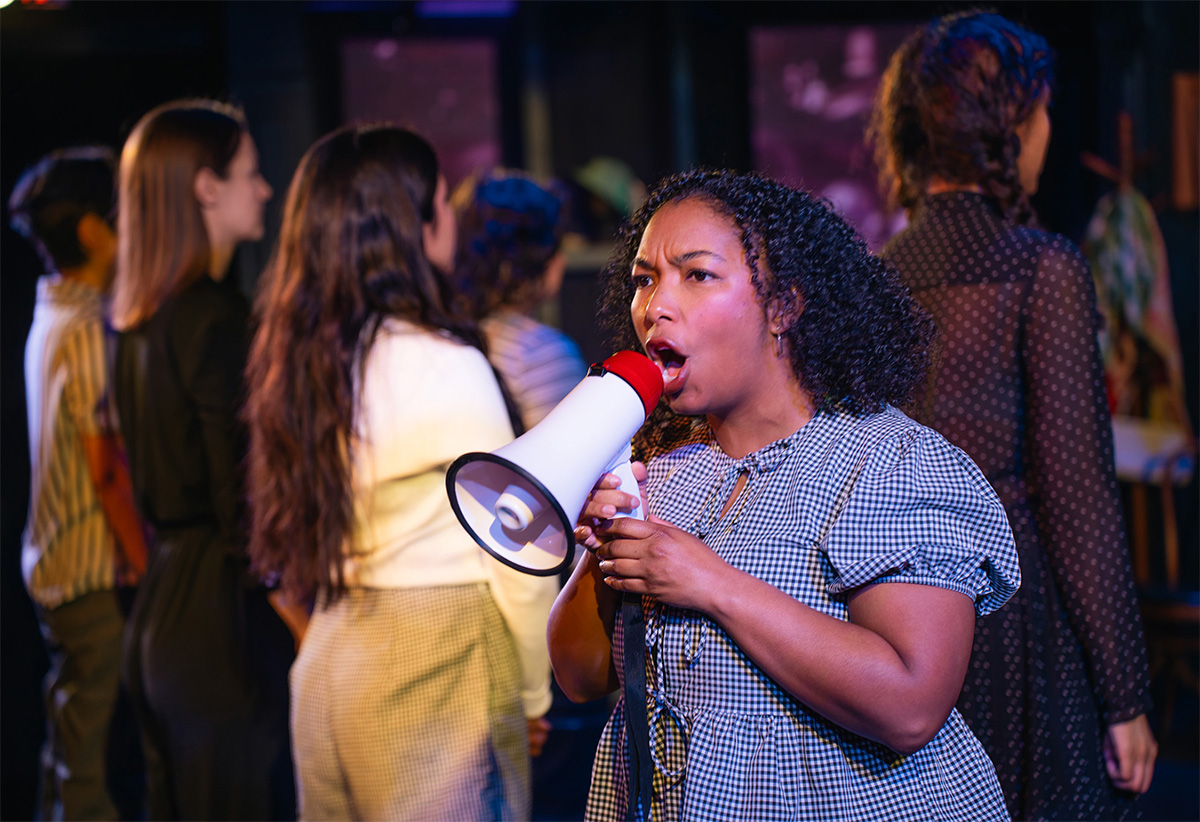
On a recent Sunday afternoon, the Fountain Theatre is nestled in quiet, minutes before a new show is to begin. Quiet jazz bounces out from the cozy cafe upstairs, and people begin to take their seats by the intimate stage inside. As the lights dim, six actors — American Covarrubias, Naseem Etemad, Kita Grayson, Mackenzie Mondag, Savannah Schoenecker, and Janet Song — begin with a powerful proclamation about the sacred act of discovering one’s own poetic voice and understanding the medium’s inherently political, participatory, and revolutionary nature.
What is stunning and clear from this very first declaration is each actor’s voice and presence: clear, loud and unwavering. Their eyes are fixed onto the crowd, flitting from person to person, demanding close attention to the production’s nearly two-hour arc that details the life and work of revered Black queer poet and activist, June Jordan.
“Poetry for the People: The June Jordan Experience” never wastes a minute. First, audience members are taken back to Jordan’s childhood in Harlem and Brooklyn, and actor Kita Grayson shapeshifts into Granville Ivanhoe Jordan — the patriarch of the family — making her body hard and rigid, her biting words twinged with Granville’s Jamaican accent. We see a young Jordan develop a penchant for poetry as a young child in the early 1940’s: a love for literature and expression blooming under the intense and even abusive watch of her father, who was her “hero and tyrant.”
We watch as each actor takes turns metamorphosing into the poet throughout the production, slipping with ease into a different part of Jordan’s life as she became a poet for the masses and a passionate educator and defender of civil rights for Black people, immigrants, Palestinian civilians, and LGBTQ+ community members. The production blends song and dance with interviews and clips of Jordan. It is refreshing to be able to see her speak: to be able to see and hear her, too, in this retrospective tribute to her life.
Throughout the show, viewers see the way Jordan’s work, alive and alchemic, traveled across mediums: not only in the defiant, romantic, and immortal texts of her poetry but also in songs, in plays, in essays, and in speeches.
Her wide-reaching impact is felt personally in this production, as her longtime partner and creative collaborator, composer Adrienne Torf, stitched together the production’s musical elements and plays the piano throughout the dynamic show. In moments, she watches the actors with steady, deferential eyes as her hands glide across the keys in gentle melodies. Love is deeply embedded in this production: Jordan’s deep devotion to creating paths of justice and humanity for others resounds throughout the show, and the love that others continue to hold for her is alive and palpable as well.
“[June] was propelled in her writing, activism and daily life to seek the possibilities for love and justice for all people,” Torf said in a recent interview. “If something was done to her or to someone she cared about, she responded with appropriate and sometimes withering anger, as would most any person with a conscience. And she cared about people in other parts of the world as much as she cared about people close to her, especially her students. June had an infectious laugh that regularly had people holding their sides as they laughed along with her. All of this comes through in her writing and the videos of her that are included in the show.”
For director and co-devisor Raymond O. Caldwell, Jordan provided him a guiding light for the development of his own activism and politically-motivated art when he was younger. “I, for so long, felt like an outsider — and then I started reading June,” Caldwell said, in an interview on KPFK. “She started teaching me what the real center of my activism was…and it’s love. Love at the center of our activism [and] art is not only art. It is personal. It is political. It is everything.”
“Poetry for the People: The June Jordan Experience” not only centers Jordan’s love and her poetic resistance — it invites the audience to take part. The actors hand out notepads and pens, and pause for a few moments throughout the show to pose writing prompts. People are encouraged to write what comes to mind, and to think about ways they can begin to seek collective and individual liberation through writing, reflecting, and community-building.
The show, experimental in its structure, is a container for possibility. It’s a timely look at how queer and marginalized people can carry June Jordan’s legacy of radical love deeply within them, as they search for tools to disrupt and dismantle the brutality that surrounds them. Jordan’s love was searing and unique in its devotion to tenderness. Her words from “Poem for Haruko” echo in my heart. “How easily you held / my hand / beside the low tide / of the world.”
“Poetry for the People: The June Jordan Experience” plays now until March 29 at the Fountain Theatre. Its next show is Monday, Feb. 16 at 8 p.m. The organization has introduced a “living ticket” model, where visitors are invited to name their own price for the show. More information can be found here.
Kristie Song is a California Local News Fellow placed with the Los Angeles Blade. The California Local News Fellowship is a state-funded initiative to support and strengthen local news reporting. Learn more about it at fellowships.journalism.berkeley.edu/cafellows.
a&e features
From ‘So Random’ to sexy theater: LA’s very own Mathew Scott Montgomery
This former Disney star breaks down their new play, ‘Foursome,’ and the security of performance.
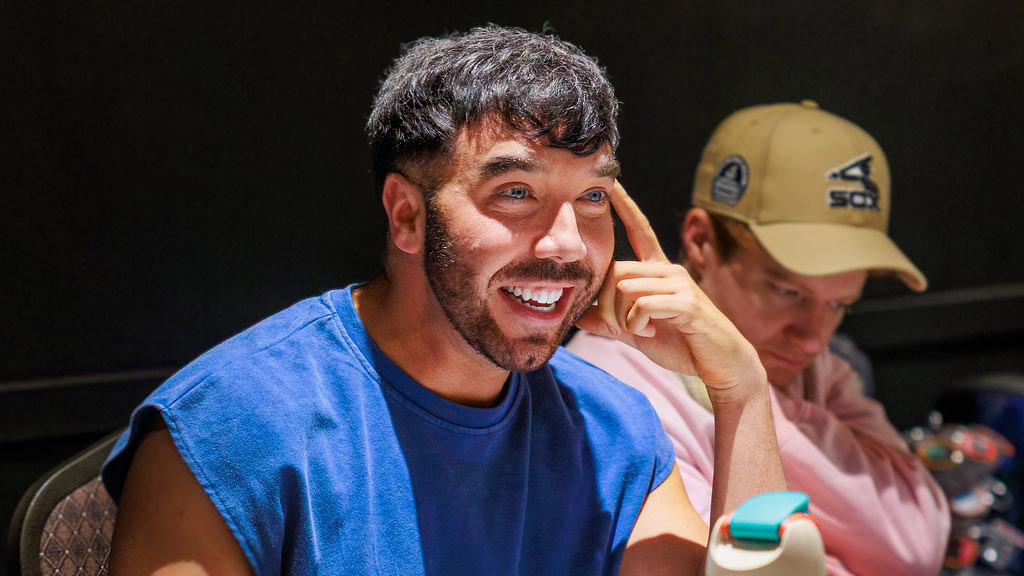
Even in a Los Angeles filled with experimental theater, few projects have been as brazenly sexual as the IAMA and Celebration’s Foursome. Following a quartet of queer friends as they embark on a weekend getaway, this play watches as they uncover the secrets (and attractions) that have always lurked in the shadows of their longtime friendships. Filled with niche community references, heartfelt vulnerability, and some of the spiciest live sex scenes audiences will ever see, Foursome is proving itself as an innovative look into queer sexuality — and none of it would have been possible without The Disney Channel.
Matthew Scott Montgomery began his career on Disney with one goal: pull focus. He quickly found out that he was a tad too good at this; in his conversation with the LA Blade, he detailed the many times his early onscreen performances were cut down because he was considered ‘too distracting.’ From starring as an extra in Zendaya’s Shake It Up to leading the SNL-style So Random!, his childhood career saw Montgomery flexing the bombastic personality he still carries today. And while the goal of this interview was to speak with the performer about Foursome and his time with Disney, the first few minutes were spent discussing an equally important portion of the man’s life: the Hilary Duff concert he’d seen at The Wiltern the night before.
“[I’d] spent all day in rehearsals with three of the best queer actors in the world, and [then I left] to go to a Hilary Duff concert in LA with my boyfriend, as a gift from [Demi Lovato],” raved Matthew. “I burst into tears because it hit me: none of this would’ve happened if I hadn’t come out…I wish I could go back to ten-year-old me back in North Carolina and [tell him], ‘One day, you’re going to leave your gay play rehearsal, [meet up] with your boyfriend, and go to a Hilary Duff concert. And everything is going to be okay.”
Matthew remembered this little kid from a conservative hometown who dreamt of nothing more than boyfriends and Lizzie Maguire in concert. He explained that his area of North Carolina didn’t allow for any level of dramatics from young boys — something that definitely didn’t mesh with this gay child who felt safest when he was onstage.
“When I was a kid, I used to record episodes of Will and Grace [on the VCR], write down the dialogue, then go into my room and run the scenes [when everyone was asleep]…I’ve always identified as an artist, and I was desperate to perform,” said Matthew, reminiscing on his early days as an artist. “I think the safest place in the world is on stage or in front of a camera, because you know exactly what you’re going to say. You know what your lines are, which mark you’re gonna hit…everyone is watching you, and you’re being perceived, and it feels so safe. I get nervous off camera, because then you don’t have a map of what’s happening.”
Performance has always served as both a passion and a safety for the actor, with Montgomery laughing at the many years he spent acting out his favorite shows in the sanctity of his childhood bedroom. Luckily, he eventually took these skills to a giant stage most kids could only dream of: The Disney Channel.
After years of hearing the terrible experiences of so many child actors, it’s heartening to learn how validating Montgomery’s early time on TV was. He told stories of Disney gigs and fun hangouts with queer stars like Haley Kiyoko and Demi Lovato, people who he still considers close friends today. “We would talk about our queerness and how to navigate it,” he said, showing love to the tight-knit network that these closeted children created for one another. It was because of their support that he had the courage to come out in his early 20s, with this new self-acceptance allowing Matthew to take on openly queer projects and even begin writing his own — cue Foursome, his latest creation and certainly the sexiest one yet.
Foursome sees the actor as Noah, a young man whose weekend at a cabin with three friends turns into a night of revelry as loosened inhibitions lead to shocking confessions. On why he created a project centered on modern sexuality, he explained, “I think there’s a really beautiful thing about the queer community where we can love each other through different evolutions of our friendships…this play is really about celebrating that freeness, and having a very frank discussion about what it means to be a queer person in a relationship in the modern day.”
The project douses this exploration into contemporary sexuality with so much pop symbolism that it’ll be relatable for any LGBTQ+ person watching. From the pop songs our main cast sing to the community-based slang they throw at one another, the writer wanted to instantly clue queer watchers into the fact that this was made for them by one of their own. And it’s that, he stressed, that is the goal of not only Foursome, but his entire career: making other people feel seen.
“What’s most important to me is queer joy,” Matthew stated, as the conversation came to an end. “Showing queer people having a good time…I think that can be a radical thing, especially with the way the world is right now. We’re going to be gay, and we’re going to be fun, and [our goal] is to have you join us in that fun.” He promises that Foursome will be a summation of his decades-long career of making people laugh, combining his uniquely gut-busting brand of humor with an earnest discussion around how our communities form relationships outside of heteronormative ideals. He invites everyone to come see Foursome and, in its nonstop joy, hopes that by creating this kind of inclusive art piece for viewers, he’ll be imparting onto them some of the security he’s always felt onstage.
And when asked if he had any final enticements for potential watchers, Montgomery adorned the smile that he’s worn since his Disney days and stated, “Well, we do say that the title, Foursome, is a promise — and we absolutely deliver.”
Foursome will have its world premiere with IAMA Theatre Company, produced in association with Celebration Theatre. Performances are at the Atwater Village Theatre, 3269 Casitas Avenue, Los Angeles, and plays now through March 23. Tickets ($30-$45) are available at iamatheatre.com
Theater
‘Incitation to the Dance’ asks what happens to love when a younger man cuts in
This dark, sexy comedy, premiering at Theatre West, looks at lust and aging in gay romance.
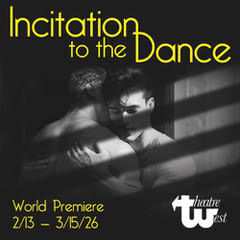
“It takes two to tango. What happens when a third cuts in?” That’s the provocative tagline of the latest dark comedy from writer/director Michael Van Duzer, Incitation to the Dance, running at Theatre West from Feb 13 to Mar 15.
The play follows an older gay couple – Malcolm is a disabled film historian who teaches a course on queer representation in film noir, while his partner Asher is a depressed and out-of-work dance instructor.
Their relationship is thrown off course when Finn, a younger dancer, stripper, and escort, crashes into their lives, exposing desires, regrets, and jealousies that had long been buried.
Van Duzer, as an older gay man with a disability himself, says he was inspired to write the show because of the relative lack of stories about older gay couples on stage and screen. Incitation provided an opportunity to explore the unique circumstances and challenges facing older queer couples.
“The fact that it’s gay men makes it somewhat different. Because of their age, getting actually legally married was not something that was available to them at the beginning of their actual relationship. Malcolm had been married to a woman at one point,” Van Duzer says.
Age and sex play out across multiple dimensions of the drama, with Malcolm jealous of the bond Asher and Finn share over dance, while Asher resents Finn’s status as an up-and-comer while he’s at the twilight of his career.
“They have several layers of rivalry that they explore throughout the play,” Van Duzer says. “They do dance with each other in these stylized dance sequences, eventually dancing out their fury.”
Van Duzer says his play’s use of heightened language and highly stylized dance sequences will intrigue audiences.
“The second dance is a tango Apache, which is a style that was done in the 20s and 30s that came from France and included slapping, hair-pulling, dragging people around, and tearing their shirts open.”
The show got its start nine years ago as part of Theatre West’s writing program as a short play presented as part of the company’s “West Fest,” and Van Duzer has been developing it since.
“The response from the audience was very good, and I saw that there was more to mine in these characters now, maybe because I’m older. I don’t know, maybe because I was no longer in a relationship,” Van Duzer admits.
As he developed the show into a full-length piece, Van Duzer brought more dance elements into it, which naturally also brought to the fore the characters’ relationships to aging and disability.
“Malcolm is reticent to discuss it in any detail, but while his Cane doesn’t slow him down, it is always there. With all of the dance, with his appreciation of it, with him being on stage not dancing, there is this natural chasm that one sees, and I think that the audience will actually relate to that much more deeply than they would to a long monologue about what happened.”
For Van Duzer, who has lived with rheumatoid arthritis all his life and had eight surgeries to treat it, it was less important to tell a tale about Malcolm’s disability than to just see it represented in how it affects his relationship.
“I don’t feel it’s a part of this story to offer explanations, but to just see the difference in not only able-bodied people but people who are dancer-athletes.”
The rawness of the sexuality and dialogue in the show presented some difficulties in casting, Van Duzor says, as some actors were reluctant to take on the piece.
Longtime collaborator David Mingrino has played Asher since the show’s earliest workshops, but Van Duzor tapped stage and screen veteran Michael Gabiano to play Malcolm, and rising star Casey Alcoser as Finn.
“They all have a terrific sense of humor and a couple of them have tried out lines that I absolutely said, ‘Hey, that’s funnier than what I wrote, so let’s go with it,’” Van Duzer says.
That humor helps carry the themes of the play, which Van Duzer says is about understanding how a relationship evolves over time.
“I want audiences to have a better understanding of what happens to a relationship, what really is important in the end.
“People can be very happy as a single person. But if your choice is to be with somebody and really work on that relationship and make it a lasting ‘til-death-do-us-part relationship, I want to share with people that, with a little kindness, with a little humor, with a little attention all at the right time, you can make this thing happen and you can still be your own person pursuing your interests.”
For Theatre West, this play also makes queer history for this long-running venue. Producer Dina Morrone shares with the Blade, “I am thrilled to be a part of this production because Michael Van Duzer’s play is the very first MainStage play/production at Theatre West in its 64-year history that presents a story about an older gay couple. In mainstream theatre, it is not common to see a story with gay characters, let alone an older gay couple featured. In this day and age, it is vital that everyone is represented on our theatrical stages. We need to show that, although it is a gay story, it is a universal one, and that, in the end, we can all relate. We are all one. One love.”
Incitation to the Dance plays at Theatre West, 3333 Cahuenga Blvd, Los Angeles, Feb 13-Mar 15, Fri-Sat 8 pm, Sun 2 pm. Tickets at theatrewest.org.
Italy
Olympics Pride House ‘really important for the community’
Italy lags behind other European countries in terms of LGBTQ rights

The four Italian advocacy groups behind the Milan Cortina Winter Olympics’ Pride House hope to use the games to highlight the lack of LGBTQ+ rights in their country.
Arcigay, CIG Arcigay Milano, Milano Pride, and Pride Sport Milano organized the Pride House that is located in Milan’s MEET Digital Culture Center. The Los Angeles Blade on Feb. 5 interviewed Pride House Project Manager Joseph Naklé.
Naklé in 2020 founded Peacox Basket Milano, Italy’s only LGBTQ+ basketball team. He also carried the Olympic torch through Milan shortly before he spoke with the Blade. (“Heated Rivalry” stars Hudson Williams and Connor Storrie last month participated in the torch relay in Feltre, a town in Italy’s Veneto region.)
Naklé said the promotion of LGBTQ+ rights in Italy is “actually our main objective.”
ILGA-Europe in its Rainbow Map 2025 notes same-sex couples lack full marriage rights in Italy, and the country’s hate crimes law does not include sexual orientation or gender identity. Italy does ban discrimination based on sexual orientation in employment, but the country’s nondiscrimination laws do not include gender identity.
ILGA-Europe has made the following recommendations “in order to improve the legal and policy situation of LGBTI people in Italy.”
• Marriage equality for same-sex couples
• Depathologization of trans identities
• Automatic co-parent recognition available for all couples
“We are not really known to be the most openly LGBT-friendly country,” Naklé told the Blade. “That’s why it (Pride House) was really important for the community.”
“We want to use the Olympic games — because there is a big media attention — and we want to use this media attention to raise the voice,” he added.

Naklé noted Pride House will host “talks and roundtables every night” during the games that will focus on a variety of topics that include transgender and nonbinary people in sports and AI. Another will focus on what Naklé described to the Blade as “the importance of political movements now to fight for our rights, especially in places such as Italy or the U.S. where we are going backwards, and not forwards.”
Seven LGBTQ+ Olympians — Italian swimmer Alex Di Giorgio, Canadian ice dancers Paul Poirier and Kaitlyn Weaver, Canadian figure skater Eric Radford, Spanish figure skater Javier Raya, Scottish ice dancer Lewis Gibson, and Irish field hockey and cricket player Nikki Symmons — are scheduled to participate in Pride House’s Out and Proud event on Feb. 14.
Pride House Los Angeles – West Hollywood representatives are expected to speak at Pride House on Feb. 21.
The event will include a screening of Mariano Furlani’s documentary about Pride House and LGBTQ+ inclusion in sports. The MiX International LGBTQ+ Film and Queer Culture Festival will screen later this year in Milan. Pride House Los Angeles – West Hollywood is also planning to show the film during the 2028 Summer Olympics.
Naklé also noted Pride House has launched an initiative that allows LGBTQ+ sports teams to partner with teams whose members are either migrants from African and Islamic countries or people with disabilities.
“The objective is to show that sports is the bridge between these communities,” he said.
Bisexual US skier wins gold
Naklé spoke with the Blade a day before the games opened. The Milan Cortina Winter Olympics will close on Feb. 22.
More than 40 openly LGBTQ+ athletes are competing in the games.
Breezy Johnson, an American alpine skier who identifies as bisexual, on Sunday won a gold medal in the women’s downhill. Amber Glenn, who identifies as bisexual and pansexual, on the same day helped the U.S. win a gold medal in team figure skating.
Glenn said she received threats on social media after she told reporters during a pre-Olympics press conference that LGBTQ+ Americans are having a “hard time” with the Trump-Vance administration in the White House. The Associated Press notes Glenn wore a Pride pin on her jacket during Sunday’s medal ceremony.
“I was disappointed because I’ve never had so many people wish me harm before, just for being me and speaking about being decent — human rights and decency,” said Glenn, according to the AP. “So that was really disappointing, and I do think it kind of lowered that excitement for this.”
Bars & Parties
SoCal queer singles come together as we celebrate LA’s Top Eligible LGBTQ Singles at the Abbey this Thursday!
Join us Thursday, February 12th at 7 pm, as we honor LA’s Top Eligible LGBTQ Singles as nominated by you!

Join us Thursday, February 12th at 7 pm, as we honor LA’s Top Eligible LGBTQ Singles as nominated by you!
Mix and mingle with other singles for this fun and casual event hosted by Salina EsTitties with a live performance by LA Blade’s Best of LA Best Local Musician and Go-Go Boy 2025, Prince Joshua. The evening will also feature an appearance by the MISTR men with Matchmaker Daniel Cooley from Best Man Matchmaking on hand. Will you find your Valentine? This event is free and open to everyone!
The Top Most Eligible LGBTQ Singles has been a long-standing event with our sister paper, the Washington Blade. In celebration of the Los Angeles Blade’s continued growth in the community, we decided to bring it to LA! Last month, we opened nominations, and the community came through, suggesting a wide variety of LGBTQ singles who are bringing some light and love to SoCal.
Let’s meet Los Angeles Blade’s Top Eligible Singles for 2026:
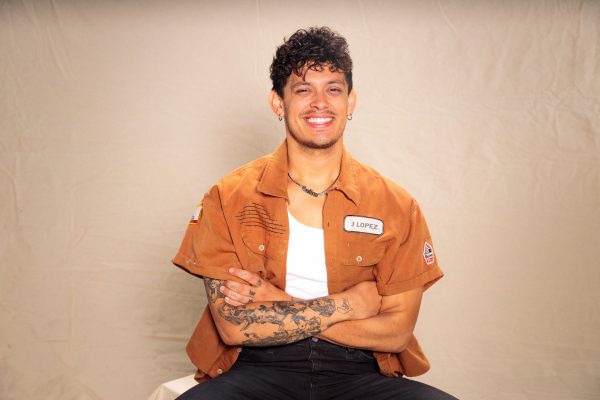
Jason De Puy aka Salina EsTitties
This self-described “most single drag queen on Earth,” Jason, is also known as Salina EsTitties and became a national sensation for her appearance on RuPaul’s Drag Race season 15. California-born and raised, he has spent the past decade as a leader not only in the Los Angeles drag community and sober community, but as a “booked and blessed diva” in the entertainment industry at large. Committed to social justice activism, she partners annually with with the AIDS Life Cycle x LGBT Center of Los Angeles, the Alliance of Housing and Healing through an annual Best in Drag Show, and the Gay Men’s Chorus of Los Angeles.
Age: 35 Occupation: Artist/Performer, Entrepreneur, Producer
How do you identify?: Gay…He/Him
What are you looking for in a mate?
I’m looking for a partner who’s secure in themselves and understands the ride of being an artist. Financial stability matters, but more so, I want someone who respects the vision—someone who’s excited to invest in our growth, not threatened by it. I value compassion, a shared understanding of the entertainment world, and a mutual push toward staying active and adventurous. Emotional awareness and spiritual curiosity are huge, too—conversations that go deeper. And, of course, someone who has their own passions—separate from mine—so we can both grow as individuals while being each other’s biggest supporters. And, you know, someone who can get sexy when the moment calls for it! And trust…there will be many moments, so stamina is important. ;)
Biggest turn off:
My biggest turnoff is a lack of kindness, especially toward service workers or anyone in a vulnerable role. If someone can’t treat others with respect, it’s an immediate no. I’m also turned off by someone who’s not willing to grow or self-reflect—emotional immaturity is a big no-no for me.
Biggest turn on:
I love playful flirtation and a partner who’s not shy about initiating—whether that’s a text or making the first move. Great communication, being touchy-feely, and making me feel wanted are all key. I’m in a place where I want to be pursued, not doing all the chasing. Oh, and big hands, someone bigger in stature than me, cause I’m a big girl.
Hobbies:
I’ve structured my life so that a lot of my passions are tied to my work—creativity, performing, and crafting immersive experiences. Outside of that, I crochet in the evenings to unwind. Lately, I’ve reconnected with bowling, something I did with my dad, and I’m now in my second bowling league season—new ball and all! I also love cinema; I’m a wannabe cinephile in the making, always up for film discussions and trips to the movies. Right now, I’m on a Marilyn Monroe kick and diving into Stella Adler interviews—I love watching conversations about the craft of acting and how movies/music/productions are made.
What is your biggest goal for 2026?
My biggest goal for 2026 is to become truly secure in myself—owning the confidence in the success I’ve built. I have exciting projects on the horizon that will expand my creativity—whether that’s music, events, or other expressions of who I am. But beyond the work, I want to feel grounded, fully in my body, and passionate about everything I’m creating. Ultimately, my goal is to feel that solid sense of inner security, while being respected, celebrated, and—yes—paid accordingly for the work I love.
Pets, Kids or Neither?
I absolutely love dogs—especially big, loyal, friendly protectors, like a sweet pit bull—but I’m open to even the little yappers charming their way into my heart. As for kids, it’s something I’d only consider if my partner and I were truly aligned. Right now, I’m not personally focused on having children myself, but if I’m in love and my partner is in a place where they’re ready and able to fully support that journey—both emotionally and financially—I’d be open. But for now, kids aren’t on my immediate horizon.
Would you date someone whose political views differ from yours?
I’ve been in a relationship before where our political views didn’t align, and I realized it’s a dealbreaker for me. For something long-term, I need us to share core values. So, no, I wouldn’t be able to date someone whose political views strongly conflict with mine—especially when it comes to fundamental issues of human rights and equality.
Celebrity crush:
I’m not huge on celebrity crushes, but let’s be honest—Chris Hemsworth, Chris Evans—any superhero named Chris is totally a vibe. But truly, I’m more about real-life connection, so I save my real crush energy for someone who steps into my reality!
Name one obscure fact about yourself:
I have 14 years sober, oh, and I was actually eliminated on the Steps of Knowledge on the adult reboot of Legends of the Hidden Temple. Turns out, the 12 steps won’t save ya on the steps of knowledge!
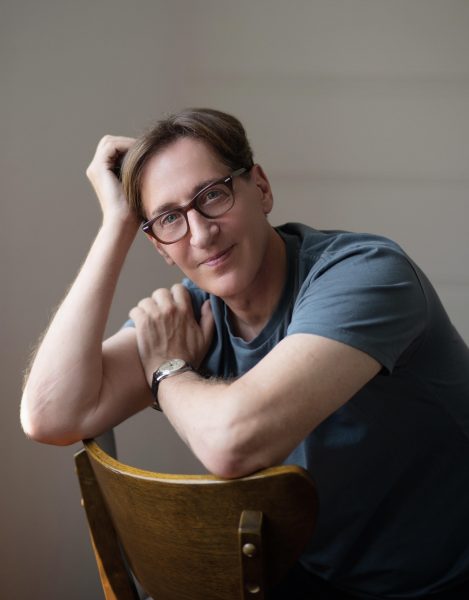
Stan Zimmerman
Stan has two WGA noms for Best Comedy Writing: The Golden Girls, Roseanne. Stan also wrote and produced Gilmore Girls, co-created the Lifetime sitcom Rita Rocks, and wrote both Brady Bunch movies. He was Host/Showrunner on Sean Hayes’ Bravo reality show Situation: Comedy. TRWshows publishes and licenses Stan’s work — Yes, Virginia, Silver Foxes, and right before I go. Stan’s book, The Girls: From Golden to Gilmore, was released by Indigo River Publishing. This past September, he made his Off-Broadway acting and playwrighting debut with his suicide awareness play, right before I go, after touring with it across America.
Age:66 Occupation: Writer/Director/Producer
How do you identify?: Gay
What are you looking for in a mate? Smart, funny, curious, stylish, empathetic
Biggest turn off: Selfish, closed minded, insensitive
Biggest turn on: Fun and flirty
Hobbies: Running, swimming, music, theatre, travel
What is your biggest goal for 2026?
Keeping my heart open and challenging myself creatively and emotionally
Pets, Kids or Neither? Maybe a cat one day
Would you date someone whose political views differ from yours?
Probably not. Right now, it’s more than just politics; it’s about one’s moral core.
Celebrity crush: Still Brad Pitt or Derek Hough. Okay, Shawn Mendes
Name one obscure fact about yourself: I used to study ballet.

Joshua Marin-Mora
Joshua works throughout the Westside as a government office field representative. He also serves as the Political Vice President for Stonewall Young Democrats. As a proud Latino and LGBTQ+ young person, Joshua is committed to furthering SYD’s mission and engagement throughout the greater LA area. When not at community events, you can find him out with friends in West Hollywood or recharging at home, getting lost in a new book.
Age: 26 Occupation: Field Representative
How do you identify: he/him
What are you looking for in a mate?
I’m looking for a mix of adventure and stability. Emotional maturity is a must. Looking for someone who knows how to communicate and be consistent.
Biggest turn off:
Someone with no plans. If you don’t have plans, whether personal or professional, it’s probably not going to work out.
Biggest turn on: Someone who is decisive. And bonus points if you can dance.
Hobbies: Love traveling, reading, volunteering, and going out with friends.
Biggest goal for 2026: I’m going to focus more on my health and fitness.
Kids, Pets or neither? Yes, pets…maybe kids.
Would you date someone whose political views differ from yours? No.
Celebrity crush: Jonathan Bailey
Name one obscure fact about yourself: I like to eat the fries first.

Liliana Perez
Liliana T. Pérez serves as the Cultural Affairs Director for the Los Angeles Chargers and is responsible for building strategic partnerships within California’s dynamic and versatile economic, cultural, and social sectors. Prior to joining the Chargers, Pérez had made a career in public service, holding senior leadership roles in the office of six Speakers of the California Assembly.
Pérez has been recognized for her advocacy work on behalf of marginalized populations, including the LGBTQ community, immigrants, and women. Pérez remains passionate about social justice and civil rights causes and is active with numerous organizations. Her volunteer and philanthropic work includes serving on the Commission on the Status of Women for the City of Los Angeles and on the Los Angeles Unified School District’s Redistricting Commission.
Age: 55 Occupation: Sr. Director of Cultural Affairs, LA Chargers
How do you identify?: Bisexual
What are you looking for in a mate?
Beautiful, passionate, work hard & play hard…successful, community advocate, honest, loves to dance bachata, merengue, and Rock en Espanol!
Biggest turn off: Cheaters, liars, half ass everything
Biggest turn on:
Hell Yes Energy! Loves live theatre, live entertainment, stand-up comedy, enjoys volunteering & raising money for worthy causes; enjoys cooking and eating… so I can share my love language by also cooking.
Hobbies: I don’t have any.
What is your biggest goal for 2026? Buy a vacation/ retirement home in Puerto Vallarta
Pets, Kids or Neither? None.
Would you date someone whose political views differ from yours? No!
Celebrity crush: Big time crazy crush is Paola Ramos… dreamy!
Name one obscure fact about yourself: I love Neil Diamond.
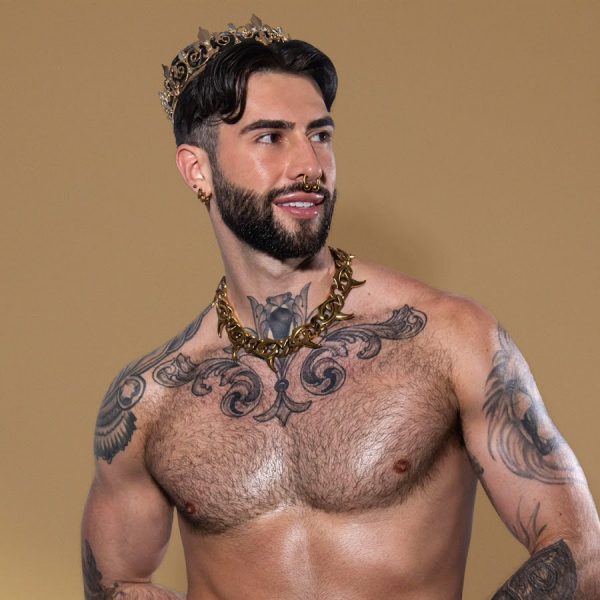
Prince Joshua
Prince Joshua is a natural-born performer driven by movement, fashion, and unapologetic self-expression. From nightlife stages to Pride festivals, he brings high energy, bold charisma, and a signature presence that blends dance, music, and style. He performs as a dancer, rapper, and MC, known for electrifying shows, fearless flair, and a radiant edge. His work has been featured on OUTtv and on major stages across the country, and in 2025, he was honored as Go-Go of the Year and Local Music Artist of the Year. He is also the creator and host of EDYN, an EDM dance party at The Abbey WeHo, where music, movement, and energy collide.
Age: 28 Occupation: Party Promoter and Go-go
How do you identify?: Gay
What are you looking for in a mate? Passion, success, drive, loyalty, and connection.
Biggest turn off: Seeing someone treat others poorly.
Biggest turn on:
Knowing someone is putting effort into wanting to understand and take care of me as a person and not just focus on the physical attraction.
Hobbies: Weightlifting, yoga, and making music.
What is your biggest goal for 2026? To make my party EDYN a staple in West Hollywood.
Pets, Kids or Neither? Neither
Would you date someone whose political views differ from yours?
I don’t think I could if the foundation of our views differs. If there are slight differences that aren’t affecting the rights of others, then I could potentially.
Celebrity crush: Bad Bunny
Name one obscure fact about yourself: I can do the splits all 3 ways
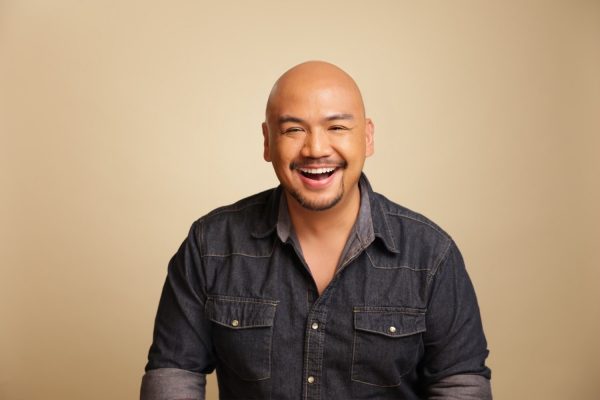
Cecilio Asuncion
Cece Asuncion (he/him) is an out and proud gay Filipino producer, director, and advocate based in Los Angeles, CA. He is the founder of Slay Model Management, the world’s first transgender-exclusive modeling agency, and a GLAAD Media Award-winning producer of STRUT on the Oxygen Network, co-produced with Whoopi Goldberg. His groundbreaking documentary What’s The T?, which follows the lives of five transgender women, received global acclaim, screening at festivals like the Palm Springs International Film Festival, where it won the Audience Choice Award, and Rio Gay de Cinema in Brazil. As a sought-after speaker on transgender advocacy, he has presented at NYU, Stanford, and the University of Colorado, using his platform to educate and inspire.
Most recently, he founded and serves as Executive Director for the CinePride Film Festival, fostering the next generation of LGBTQIA+ filmmakers, ensuring they have the resources and support to bring their visions to life.
Age: 49 Occupation: TV Producer
How do you identify?: Gay
What are you looking for in a mate?
Chemistry, obviously—but chemistry that holds up on a random Tuesday. Someone smart, warm, and grounded, who can laugh at dumb shit, communicate honestly, and isn’t afraid of real intimacy. I’m attracted to people who are passionate about what they do and generous in how they show up. Bonus points if they’re emotionally fluent and can keep up in both a deep conversation and a ridiculous one.
Biggest turn off:
Arrogance and inconsistency. If someone is charming but unreliable, that’s an immediate buzzkill.
Biggest turn on:
Competence. Watching someone be really good at what they do—and still be kind about it.
Hobbies:
Exploring new food spots, cooking for friends, avoiding hiking, traveling, and building creative projects that probably should count as hobbies at this point.
What is your biggest goal for 2026? World domination.
Pets, Kids or Neither? Pets 100%!
Would you date someone whose political views differ from yours?
Not in this climate, or ever, no.
Celebrity crush: Seth Rogen
Name one obscure fact about yourself: I hate long walks on the beach.
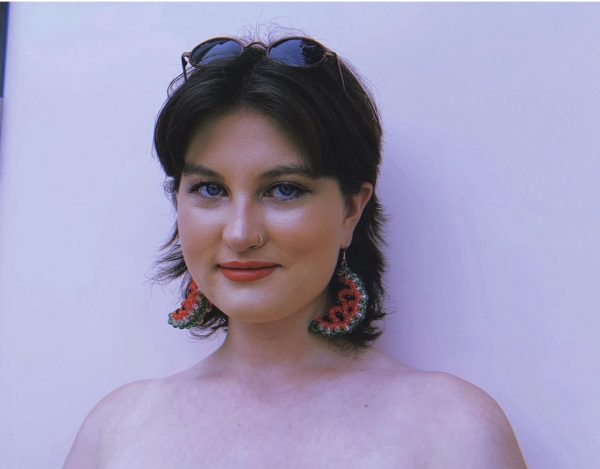
Brynn Allen
Brynn was born in Seattle, Washington, and was raised on Occupied Duwamish Territory. She graduated with a BA in Theatre Arts from the University of Puget Sound. Although she focused on theatre making and acting in college, she also pursued studies in other fields such as criminal justice, filmmaking, gender/queer studies, politics, interpersonal communication, and communication through technology. Social justice and advocacy are always a priority in her artistic work and everyday life.
Age: 27 Occupation: Actor
How do you identify? Sapphic Queer
What are you looking for in a mate?
I am looking for a partner who is a classic Dyke. Someone who knows how to build a fire, appreciates the arts, is emotionally mature, able to take initiative romantically, used to play softball, has a strong sense of self, confident in their individuality, ideally able to lift me, has Socialist values, is community-oriented, able to riff, and embraces whimsy.
Biggest turn off: Cockiness or being mean, because why are you acting like that?
Biggest turn on: When someone has a well-curated closet, or they’re a good dancer.
Hobbies:
Sitting in a park and reading, going to the beach, going to see live music, short hikes or long walks in nature, supporting my friends’ creative projects, shopping at an antique mall, and watching movies at the nearest AMC.
What is your biggest goal for 2026? To prioritize my creative endeavors and take more risks
Pets, Kids or Neither? Neither
Would you date someone whose political views differ from yours? No ❤️
Celebrity crush: All members of MUNA
Name one obscure fact about yourself: I used to be an Alpine Ski racer.
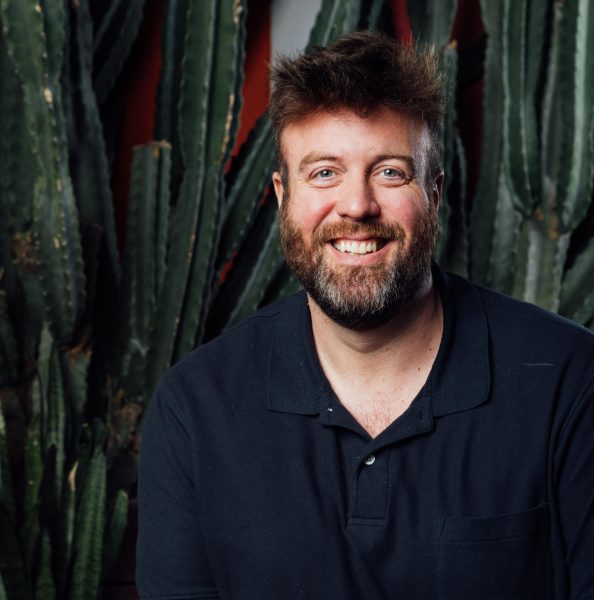
Patrick Murray
Patrick is a Los Angeles–based entrepreneur, former opera singer, and certified triple-threat conversationalist, fluent in three languages, making him perfect for dinner date banter. After years onstage, he traded songs for sausages and founded Franzl’s Franks, an Austrian-inspired food brand that mixes European flair, queer joy, and serious culinary chops. Equal parts creative and ambitious, Patrick is tall, personable, and unapologetically himself. He’s proof that the most eligible single in LA can sing, sell, and serve.
Age: 40 Occupation: Entrepreneur
How do you identify? Gay
What are you looking for in a mate?
Someone ambitious, so we inspire each other to be better, patient, and kind through life’s chaos, with the wit to match mine as we laugh our way through adventures.
Biggest turn off:
A lack of curiosity about the world. Someone who doesn’t strive for more or isn’t interested in personal growth probably wouldn’t be the best match. Also, chewing with your mouth open is instant no.
Biggest turn on:
Big brown puppy dog eyes and a kind smile make me melt. A man who initiates and knows what he wants, because I can get shy sometimes.
Hobbies:
Interior design and fantasy house hunting, baking cakes no one asked for, taking walks to unlock my daydreams, going out dancing or going to the opera, Unsolved Mysteries marathons
What is your biggest goal for 2026?
To grow my business, fall in love, and swan dive from the top of a building into a tiny cup of water
Pets, Kids or Neither? Love pets! Kids are wonderful via FaceTime.
Would you date someone whose political views differ from yours?
I mean, I could probably date a moderate democrat. That’s about as far right as I’d go.
Celebrity crush: Cooper Koch, Francois Arnaud, Hasan Minhaj (and Piker!)
Name one obscure fact about yourself:
My parents named me my name so it would look good in the newspapers when I scored touchdowns…but now I’m in the paper for being gay and single, so the joke’s on you, Mom!
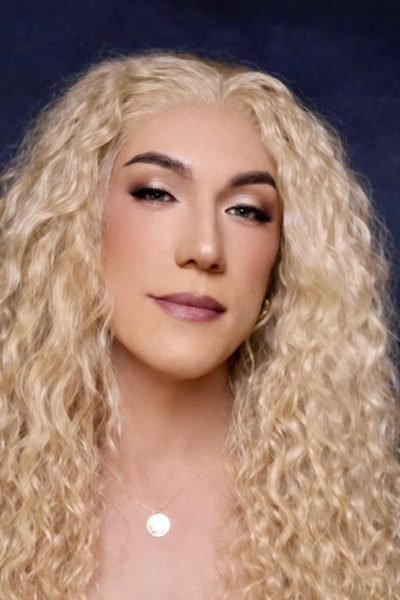
Hera Anderson
Hera Anderson is an award-winning transgender actor, film producer, and writer raised in Europe and settled down in the USA a few years ago, pursuing her career in the entertainment industry. She’s been in the industry for more than 15 years, proudly creating her own history. She’s been performing in drag queen shows, developing her own film projects, and writing her new stories to share.
Known for her confidence, warmth, and bold presence, she brings authenticity and charisma to every space she enters. Hera is passionate about storytelling, connection, and building meaningful relationships both on and offstage.
Age: 40 Occupation: Actress/Writer/Producer
How do you identify? Transgender Woman
What are you looking for in a mate?
Peace and passion. Someone emotionally mature, consistent, and kind, with a playful side. I’m building a big creative life, so I’m into a partner who’s self-sufficient, communicative, and genuinely excited to grow together.
Biggest turn off:
Bad hygiene, flakiness, cruelty, and negative energy. If you’re disrespectful to people “below” you, I’m out.
Biggest turn on:
Warm eyes, a great smile, confidence without ego, emotional intelligence, and someone who’s generous with affection. I love a creative mind and a person who plans dates instead of just texting “wyd.”
Hobbies:
Trying new restaurants, dancing, movies, writing/creating, live shows, beach walks, exploring LA, and traveling whenever I can. Also, I’m a sucker for a cute coffee spot.
What is your biggest goal for 2026?
To fall in love with someone ready for commitment and a shared future.
Pets, Kids or Neither?
Puppy mom, and yes, I’m open to having kids in the future with the right person
Would you date someone whose political views differ from yours?
We can disagree on opinions, not on human rights. Respect, empathy, and basic decency are non-negotiable.
Celebrity crush: Jason Statham, Chris Pratt, Matthew McConaughey, Mark Wahlberg
Name one obscure fact about yourself:
I’ll go out “for one coffee” and somehow leave with a full day’s plan and three new ideas.
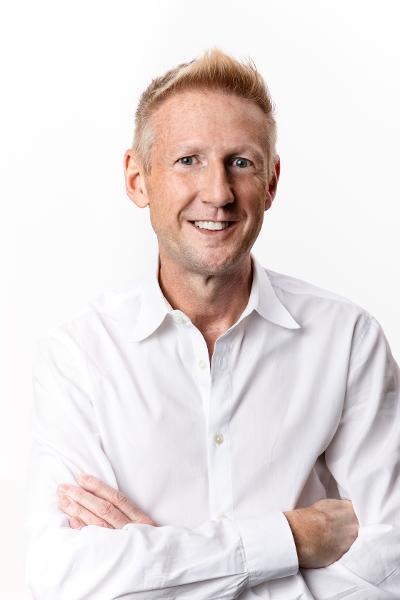
Kevin Peter Berg
Kevin is a West Hollywood–based entertainment legal and business leader with a long career in film and television. Known for his thoughtful leadership and commitment to inclusive storytelling, Kevin brings both heart and intellect to everything he does. Deeply connected to his community, he proudly supports Project Angel Food, GLAAD, and the Los Angeles LGBT Center. Off the clock, Kevin’s vibrant life in SoCal reflects his love of culture, authenticity, and living boldly at every stage. Grounded yet adventurous, he values authenticity, good conversation, and relationships built on curiosity, respect, and shared joy.
Age: 57 Occupation: General Counsel
How do you identify? Gay male
What are you looking for in a mate?
A true partner—someone with a great sense of humor, a spirit of adventure, and a love of travel. I’m drawn to men who are emotionally intuitive, secure, and confident, yet still playful and open-hearted. Bonus points if you enjoy musical theatre and a good romantic comedy as much as a holiday getaway. Ultimately, I’m looking for a connection built on laughter, curiosity, and the joy of discovering life together.
Biggest turn off: Lack of communication and connection – physically and verbally
Biggest turn on: Confidence
Hobbies:
Travel & exploration, fitness, social connections with friends (movie, live theatre, brunch, trivia nights)
What is your biggest goal for 2026? Focus on new career opportunities
Pets, Kids or Neither? Pets (one cat)
Would you date someone whose political views differ from yours?
No, as that would create too many opportunities for conflict
Celebrity crush: Ryan Reynolds
Name one obscure fact about yourself: I lip-synch songs in front of the bathroom mirror
Let’s hear it for our inaugural Top LGBTQ Eligible Singles! Join us this Thursday, February 12th, at 7 pm at The Abbey to celebrate.
Puerto Rico
Bad Bunny shares Super Bowl stage with Ricky Martin, Lady Gaga
Puerto Rican activist celebrates half time show

Bad Bunny on Sunday shared the stage with Ricky Martin and Lady Gaga at the Super Bowl halftime show in Santa Clara, Calif.
Martin came out as gay in 2010. Gaga, who headlined the 2017 Super Bowl halftime show, is bisexual. Bad Bunny has championed LGBTQ+ rights in his native Puerto Rico and elsewhere.
“Not only was a sophisticated political statement, but it was a celebration of who we are as Puerto Ricans,” Pedro Julio Serrano, president of the LGBTQ+ Federation of Puerto Rico, told the Washington Blade on Monday. “That includes us as LGBTQ+ people by including a ground-breaking superstar and legend, Ricky Martin singing an anti-colonial anthem and showcasing Young Miko, an up-and-coming star at La Casita. And, of course, having queer icon Lady Gaga sing salsa was the cherry on the top.”
La Casita is a house that Bad Bunny included in his residency in San Juan, the Puerto Rican capital, last year. He recreated it during the halftime show.
“His performance brought us together as Puerto Ricans, as Latin Americans, as Americans (from the Americas) and as human beings,” said Serrano. “He embraced his own words by showcasing, through his performance, that the ‘only thing more powerful than hate is love.’”
Books
New book explores homosexuality in ancient cultures

‘The Queer Thing About Sin’
By Harry Tanner
c.2025, Bloomsbury
$28/259 pages
Nobody likes you very much.
That’s how it seems sometimes, doesn’t it? Nobody wants to see you around, they don’t want to hear your voice, they can’t stand the thought of your existence and they’d really rather you just go away. It’s infuriating, and in the new book “The Queer Thing About Sin” by Harry Tanner, you’ll see how we got to this point.
When he was a teenager, Harry Tanner says that he thought he “was going to hell.”
For years, he’d been attracted to men and he prayed that it would stop. He asked for help from a lay minister who offered Tanner websites meant to repress his urges, but they weren’t the panacea Tanner hoped for. It wasn’t until he went to college that he found the answers he needed and “stopped fearing God’s retribution.”
Being gay wasn’t a sin. Not ever, but he “still wanted to know why Western culture believed it was for so long.”
Historically, many believe that older men were sexual “mentors” for teenage boys, but Tanner says that in ancient Greece and Rome, same-sex relationships were common between male partners of equal age and between differently-aged pairs, alike. Clarity comes by understanding relationships between husbands and wives then, and careful translation of the word “boy,” to show that age wasn’t a factor, but superiority and inferiority were.
In ancient Athens, queer love was considered to be “noble” but after the Persians sacked Athens, sex between men instead became an acceptable act of aggression aimed at conquered enemies. Raping a male prisoner was encouraged but, “Gay men became symbols of a depraved lack of self-control and abstinence.”
Later Greeks believed that men could turn into women “if they weren’t sufficiently virile.” Biblical interpretations point to more conflict; Leviticus specifically bans queer sex but “the Sumerians actively encouraged it.” The Egyptians hated it, but “there are sporadic clues that same-sex partners lived together in ancient Egypt.”
Says Tanner, “all is not what it seems.”
So you say you’re not really into ancient history. If it’s not your thing, then “The Queer Thing About Sin” won’t be, either.
Just know that if you skip this book, you’re missing out on the kind of excitement you get from reading mythology, but what’s here is true, and a much wider view than mere folklore. Author Harry Tanner invites readers to go deep inside philosophy, religion, and ancient culture, but the information he brings is not dry. No, there are major battles brought to life here, vanquished enemies and death – but also love, acceptance, even encouragement that the citizens of yore in many societies embraced and enjoyed. Tanner explains carefully how religious credo tied in with homosexuality (or didn’t) and he brings readers up to speed through recent times.
While this is not a breezy vacation read or a curl-up-with-a-blanket kind of book, “The Queer Thing About Sin” is absolutely worth spending time with. If you’re a thinking person and can give yourself a chance to ponder, you’ll like it very much.
Sports
Michael Ferrera is paving a path of safety and liberation for queer athletes
The Blade interviewed the C.E.O. of Out Athlete Fund, which has sponsored six out athletes competing in the 2026 Winter Olympics and is creating the first U.S. Olympic Pride House in 2028.
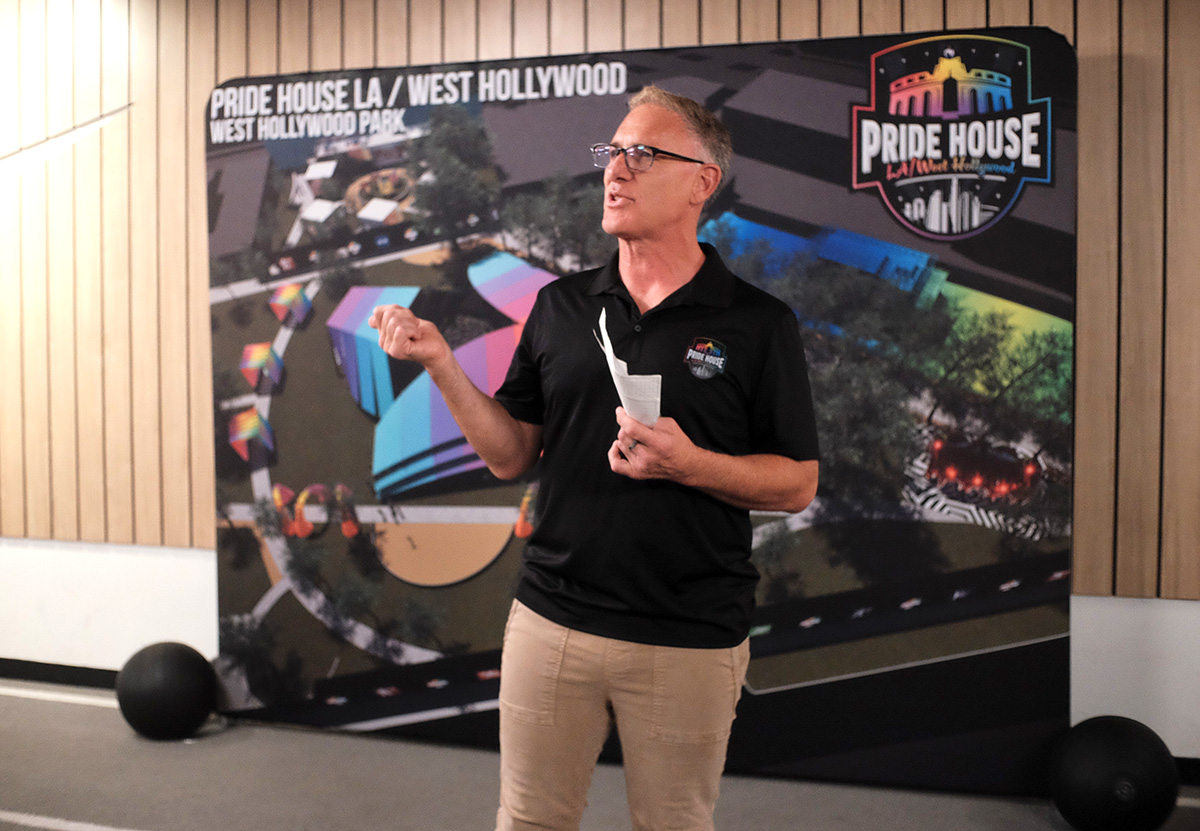
Michael Ferrera was 10 when he first watched U.S. figure skating duo Tai Babilonia and Randy Gardner cascade like currents across the ice, their arms forming delicate shapes in sync as they jumped, spun, and dominated national and world competitions in the late 1970’s.
As a young closeted kid, Ferrera’s admiration for the skaters and the sport was a source of comfort: a place where he could see men embody the nuances of gender. “I saw this mixture of masculinity and grace and expression, and that they were fully themselves as men,” Ferrera told the Blade.
Today, after decades of LGBTQ+ non profit work and leadership in Los Angeles, Ferrera is directing his passion for advocacy and queer affirmation towards that initial childhood love: sports. He leads Out Athlete Fund, an organization that supports and uplifts queer athletes, championing their visibility in public arenas. Recently, Out Athlete Fund announced its sponsorship of six U.S. athletes competing at the 2026 Milano Cortina Winter Olympics and Paralympics, which began today.
Out Athlete Fund is also producing Pride House L.A./West Hollywood, their most ambitious undertaking yet. With over $1 million in funding support from L.A. County and the City of West Hollywood, the organization will take over West Hollywood Park for the 2026 FIFA World Cup and the 2028 Summer Olympics and Paralympics.
Pride House L.A./West Hollywood will be the first-ever U.S. LGBTQ+ hospitality house for the Olympic Games, joining a burgeoning fight for queer representation in professional sports.
The first Pride House was created in 2010 during the Winter Olympics in Vancouver, forming a foundation that Ferrera hopes to build upon. “We’re trying to lift the movement [and] create a through line,” Ferrera said, who is weaving stronger connective roots between the various Pride Houses that come before him, and the ones that will follow.
The Los Angeles Blade and Washington Blade announced today that it will serve as the exclusive queer media sponsor for Pride House, and will cover the organization’s plans, interview queer athletes, and report on upcoming events.
We sat down with Ferrera for the first of these exclusive interviews. In this conversation, Ferrera tells us about the growth of Out Athlete Fund, what people can expect from Pride House L.A./West Hollywood at the FIFA World Cup and the 2028 Olympics, as well as the importance of LGBTQ+ safety, representation, and celebration in professional sports.
How did your journey with Out Athlete Fund begin?
This [opportunity] with Out Athlete Fund came out of the pandemic. That was a tough time. L.A. Pride got shut down in 2020. For those of us in the nonprofit world, there weren’t new jobs. That became quite a journey, trying to consult and be creative about how to get through that time.
And then, when [lockdown] was over, my friend Erik Braverman, who’s also on the board for Out Athlete Fund, came to me and said, “Michael, there’s this great thing going on. My friend Cyd Ziegler from OutSports and Les Johnson from Gay Games are involved. I think you should meet them, because they need somebody to run their nonprofit, and you have that experience.”
He knew that I love sports. I was born into a Boston, New England family, and you don’t have any choice. So I met Cyd, [who] really is one of the preeminent voices in this world of out athletes, and it just seemed like a good fit. Honestly, the first two years, working with Out Athlete Fund, we didn’t have money to pay staff. Everybody was volunteering, including me.
We’re really excited because we haven’t been doing this very long. Our first real event was last year. At the end of the summer, we [screened] A League of Their Own at the Autry Museum. [For today’s] Milan opening ceremony watch party, we have almost 600 RSVP’s.
We’re focused on our visibility mission and raising money to support athletes. We have six at Milan. When we started the year, our goal was to sponsor two, so this is growing so fast. I’m just so excited.
When it comes to the Winter Games in Milan, they’re happening under a government that is similar to ours in its anti-LGBTQ+ attitudes. How does that affect your mission of supporting athletes on world stages in places that aren’t accepting of their queerness?
Our sponsorship of these athletes is much more than just writing them a check. It’s letting them know that they have a community behind them. That’s really what Pride House does. It’s bringing together fans and allies so that these athletes feel like they have a community. And the fans know that there are people like them who are excelling in these sports and don’t have the artificial ceilings that are placed upon them.
Now I think there’s 44, at the moment, out athletes at Milan, and that’s a record for the Winter Olympics. That’s so important: that they know that they have the support of fans in their community, financially, emotionally, in a country that is right now pretty hostile to them, and to have Pride House there.
So that’s what we’ve got to do. We have to stake a claim, right? And with Pride House L.A./West Hollywood, we want to do that here. We’ll be the first Olympics Pride House in the United States, and we want to grow that [and send the message]: We are here. Our athletes are here. We’ve got their backs. You should, too. I think that’s how we make slow change.
What will be unique about Pride House L.A. and what will programming look like?
We want to [translate] the power of Los Angeles. We have the entertainment community here. We have a lot of business here, and it’s an exciting city, and it’s got a lot of flash.
When we take over West Hollywood Park, we will have the whole park. We have 17 days, 12 hours a day to program things. We’ll have a concert stage. We’ve had meetings in the last couple of weeks about A-list celebrities who will come and do a tribute concert to athletes. And we’ll have a smaller stage too that’ll have community performances, meet and greets with athletes. [There will be] panel discussions inside an exhibition hall, where there’ll be a million TV screens so that people can watch every single competition that’s going on.
[There will also be] big screens outside and on the concert stage. We’re going to have Paralympic sports exhibitions, a history museum about our athletes, where a lot of art will be involved. We’ll have a restaurant. We’ll have food trucks. We’ll have bars. Almost everything will be free of charge to the public. Competitions are expensive to go to — now, you can come watch with your community and have fun.
We’re still figuring it all out, because our imaginations are the only things that limit what we can do in all those days and with all those hours: everything from a gay employee group having an afternoon together, to having the youth at the Laurel Foundation come for a camp day, to a seniors day.
I want my community to be up front. I want them to see Pride House reflect them, because if it doesn’t reflect them, it doesn’t reflect all the athletes that are potentially out there too. So that’s a big part of the job. It’s making sure this community has a voice and has the opportunity to contribute and help us make it the best it can be.
There’s so much community activation in the works. What can athletes expect at the hospitality house?
One of my proudest things that we’ve established for Pride House L.A./West Hollywood is that we’re going to have a dedicated athlete area. We’ll have shuttles that go between UCLA, where the Olympic athlete village will be, and this second athlete village. This is already sanctioned by the Athlete Relations Director for LA 28.
[Queer athletes will] know that there’s a space that they can go to outside of the [general] athlete village, outside of the politics and the limitations that are there. They can come to this place that’s really for them, and they’ll have their own entrance. The dream of that is that if an athlete comes from Egypt or Iran or Russia — some place where they feel like they can’t be themselves, [where] laws are against them — they can come here and see what experiences they can have being in a place that’s safe and inclusive and celebratory.
That feels liberatory. Pride House can offer, even for a moment, a space where queer people can live openly as themselves when they might have to conceal themselves in the places they spend most of their time in.
When I worked at the LA LGBT Center, we had a program with Chinese activists. [They] came to the Center and were able to go through all the departments, learn about the different kinds of services, how they were provided, how we raised money, how we worked within the community, and [try to figure out how] to tailor the knowledge that we were providing to the reality that they had.
On the ground, they were getting called into the police station [for] trying to show LGBTQ+ films at a film festival. You couldn’t really say it was a film festival. You had to say it was an HIV/AIDS prevention thing, and they got found out.
I became friends with these Chinese activists, and that’s when I say: having a conversation with another human being, [it’s] not [about] the borders and the politics. You’re just two humans facing different circumstances, [questioning]: How can we make it better for each other?
How do those borders show up in sports?
What I hope is that people understand: sports is one of the last bastions of historical hostility toward our community. There are a lot of stereotypes that people still speak about every day, just to keep those walls up and those ceilings up. If you can introduce us and start to normalize that, and have more visibility, and have more athletes feeling safe and supported, it has the power to change in an incredible way. So many people get exposed to these [larger] issues because they’re exposed to sports.
It’s really powerful. Sports crosses lines: it crosses racial lines, cultural lines, national lines. The power of the Olympics is that athletes come from countries all over the world, and when you’re with somebody [in person], there’s no border there. There are the borders of maybe language or human borders, but there’s no ICE. There’s no hostility or laws or whatever coming between you. There’s just this incredible opportunity to speak to each other as two human beings and get to know each other without all of that stuff getting in the way.
In April, Out Athlete Fund plans to host a 25th annual anniversary screening of Greg Berlanti’s West Hollywood-centered film Broken Hearts Club. The organization will also host four days of festivities at Beaches Tropicana WeHo for the 2026 FIFA World Cup. The Blade will continue to provide exclusive updates on these events, as well as the six Winter Games athletes sponsored by the organization.
Kristie Song is a California Local News Fellow placed with the Los Angeles Blade. The California Local News Fellowship is a state-funded initiative to support and strengthen local news reporting. Learn more about it at fellowships.journalism.berkeley.edu/cafellows.
Arts & Entertainment
2026 Best of LGBTQ LA Readers’ Choice Award Nominations
Nominations for the Best of LGBTQ LA Awards are open from until February 15th!

It’s time to celebrate the vibrant and diverse LGBTQ+ community of Los Angeles! Nominations for the Best of LGBTQ LA Awards are open from until February 15th, giving you the chance to highlight your favorite local legends, hotspots, performers, and change-makers. Then, from February 23rd to March 6th, cast your vote for the finalists and help decide who truly represents the best of LGBTQ LA. The Best of LGBTQ LA Awards Party will be held on March 26th at The Abbey!
Use the form below or click the link HERE to nominate!
-
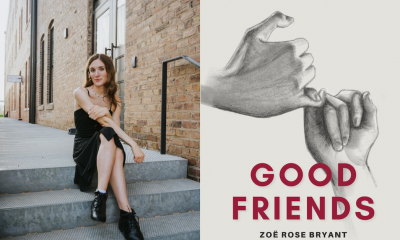
 Books15 hours ago
Books15 hours agoZoë Rose Bryant on her chart-topping debut novel ‘Good Friends’ and inspiring young trans people online
-
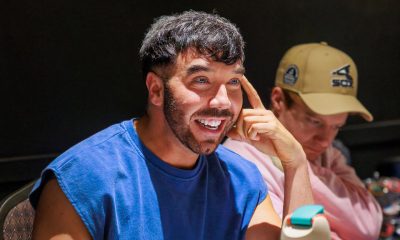
 a&e features5 days ago
a&e features5 days agoFrom ‘So Random’ to sexy theater: LA’s very own Mathew Scott Montgomery
-

 Los Angeles5 days ago
Los Angeles5 days agoA new “queer summer camp” cycling event rises from the legacy of AIDS/LifeCycle
-

 Reviews3 days ago
Reviews3 days ago“The June Jordan Experience” captures the late queer poet’s tender, revolutionary legacy
-

 Los Angeles15 hours ago
Los Angeles15 hours agoNikko LaMere’s photo exhibit “JOY!” documents the euphoria of Black queer nightlife
-

 Viewpoint19 hours ago
Viewpoint19 hours agoGay acceptance in US takes a dangerous reversal
-

 Commentary1 day ago
Commentary1 day agoValentine’s Day, Alone
-

 National11 hours ago
National11 hours agoLGBTQ+ activists mourn the Rev. Jesse Jackson
-

 Commentary9 hours ago
Commentary9 hours agoPost-Valentine’s Day: Are your standards protecting you — or keeping you single?



